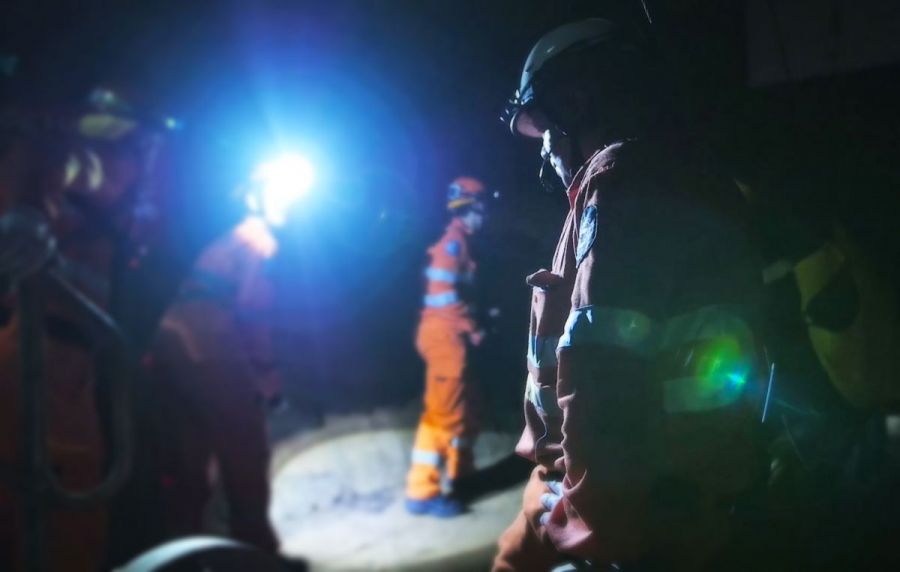
Over time, stresses build beneath the Earth's surface.
Occasionally, stress is released resulting in the sudden and sometimes disastrous shaking we call an earthquake. The shaking could last seconds or minutes, with possibilities of several earthquakes over a period of time that range from hours to weeks. These are called foreshocks and aftershocks, the latter decreasing in magnitude with time.
If your area has an earthquake history or potential, this advice could help save you injury and distress.
- Know your local earthquake risk
Ask NT Emergency Service, your local council and your insurance company for this information:
- Watch for possible warning signs
- Erratic animal behaviour - scared, confused pets running about, or birdcalls not usually heard at night.
- Ground water levels - watch for sudden water level changes in wells or artesian bores.
- During the earthquake
- If indoors, stay there (clear of falling debris outside). Keep clear of windows, chimneys and overhead fittings. Shelter under and hold a doorframe, table, bench etc.
- In high-rise buildings, stay clear of windows and outer walls. Get under a desk near a pillar or internal wall.
- Do not use elevators.
- In crowded areas or stores, do not rush for doors. Move clear of overhead fittings and shelves.
- If outside, keep well clear of buildings, overhead structures, walls, bridges, power lines, trees, etc.
- In a city street, shelter from falling debris under strong archways or doorways of buildings. Don't go under awnings or parapets as they may collapse.
- If in a vehicle, stop in an open area until shaking stops. Beware of 'downed' power lines and road damage, including overpasses and bridges. Listen to your car radio for warnings before moving.
- After the earthquake
- Watch for hazards and tend to injuries.
- Turn off electricity, gas and water - do not light matches until you have checked for gas or fuel leaks.
- Check for injuries. Apply first aid. Do not move the seriously injured unless in immediate danger.
- Check for broken water, sewerage or electrical mains.
- Do not use telephone immediately (to avoid congestion) unless there is a serious injury or fire, etc. Try SMS instead.
- Check for cracks/damage, in roof, walls, chimneys, etc.
- Evacuate if badly damaged. Be prepared for aftershocks.
- Do not waste food and water as supplies may be interrupted.
- Collect emergency water from heaters, ice cubes, toilet tanks and canned foods.
- Listen to local radio and heed warnings and advice on damage and service disruptions.
- Avoid driving unless for emergency (keep streets free).
- Do not go sightseeing or enter damaged buildings.
- Stay calm and help others if possible.

